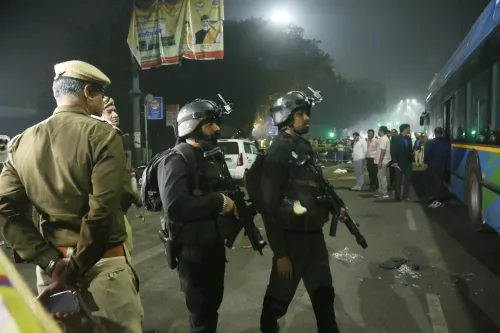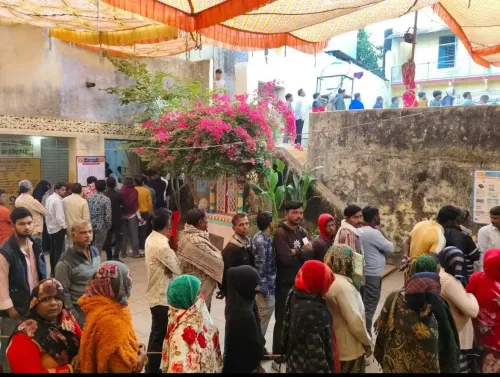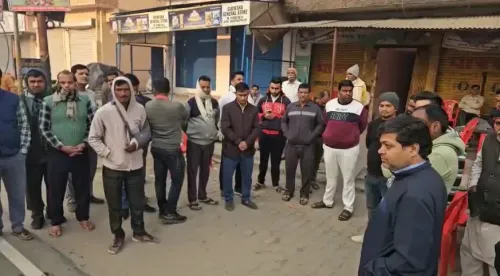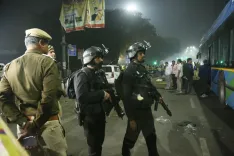Is the Karnataka government acting hastily under pressure regarding the caste census?
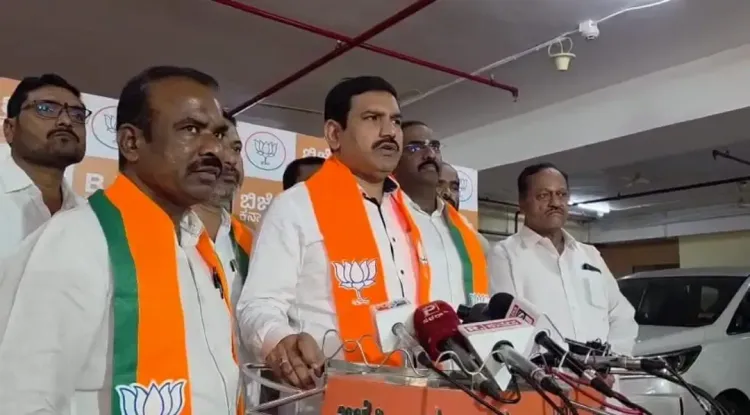
Synopsis
Key Takeaways
- Karnataka's caste census is under scrutiny for its hurried execution.
- BJP leaders allege external pressures influencing the process.
- The census aims to collect data from 7 crore individuals.
- Concerns regarding the survey's scientific validity have been raised.
- Government employees are calling for school holidays to facilitate the census.
Bengaluru, Oct 7 (NationPress) The President of the State BJP and MLA B.Y. Vijayendra expressed concerns on Tuesday regarding the escalating disorder surrounding the ongoing Socio-Economic and Academic survey, commonly referred to as the caste census in Karnataka.
"The government is succumbing to external pressures and hastily proceeding with the caste census," he asserted.
Addressing the press in Bengaluru, Vijayendra remarked, “The state administration is altering its statements on a daily basis. The commission is hastily conducting the census without adequate preparation, yielding to external pressures. Just recently, Deputy Chief Minister D.K. Shivakumar mentioned that no one could respond to 60 questions. They have included numerous irrelevant and unreasonable inquiries,” he criticized.
“Teachers are encountering challenges; they have families and responsibilities as well. Even differently-abled individuals have been assigned to the field, leading to significant backlash. In Belur, Hassan, there was an incident where an individual was bitten by a dog. Such occurrences have resulted in injuries to many. Overall, the census appears to be executed under pressure and at a hurried pace,” he alleged.
“Whenever we discuss this matter further, CM Siddaramaiah immediately accuses BJP leaders of being anti-backward classes and obstructing justice for backward communities. However, the reality is that the BJP is more dedicated than Congress to ensuring economic, educational, and social justice for Scheduled Castes, Scheduled Tribes, and all backward communities in both this state and the nation. This commitment has led Prime Minister Narendra Modi to make a historic decision—one that no central government has made since Independence—to include caste enumeration in the national census,” Vijayendra stated.
In response to a question, he noted that the caste census within the state is being executed unscientifically. “During the Kantharaju Commission report, similar confusion and disorder arose. Now, the same situation is recurring,” he commented.
Also present were Leader of the Opposition in the Legislative Council and Chief Whip N. Ravikumar, SC Morcha State President and MLA Cement Manjunath, former State Secretary Jagadish Hiremani, and Hassan District President Siddesh Nagendra.
The caste census commenced in Karnataka on September 22 and is being carried out by the Karnataka State Commission for Backward Classes (KSCBC). It targets to gather data from approximately 7 crore individuals across 2 crore households using a 60-question questionnaire. The government has asserted that this survey will assist in policy formulation, outreach to marginalized communities, and their integration into the mainstream.
Karnataka Chief Minister Siddaramaiah announced on Tuesday that he is leading a high-level meeting in Bengaluru to decide on extending the deadline for the Socio-Economic and Academic Survey, popularly known as the caste census. The deadline is set to conclude on Tuesday (October 7).
In a statement to reporters in Bengaluru, Siddaramaiah mentioned, “I am organizing a meeting regarding the survey. Immediately after the Valmiki Jayanti celebration, I will conduct the review meeting.” When questioned about the Education Department already issuing a directive extending teachers’ deputation to facilitate the survey, he replied that all matters will be deliberated in the meeting.
The meeting includes the Chairman of the Karnataka State Backward Classes Commission, Madhusudhan R. Naik, Chief Secretary Shalini Rajneesh, and senior bureaucrats. The CM is anticipated to announce the extension of the deadline following the review.
In the meantime, the Karnataka State Government Employees Association has reached out to Education Minister Madhu Bangarappa, requesting the declaration of holidays for all government primary and high schools in the state until October 17.


